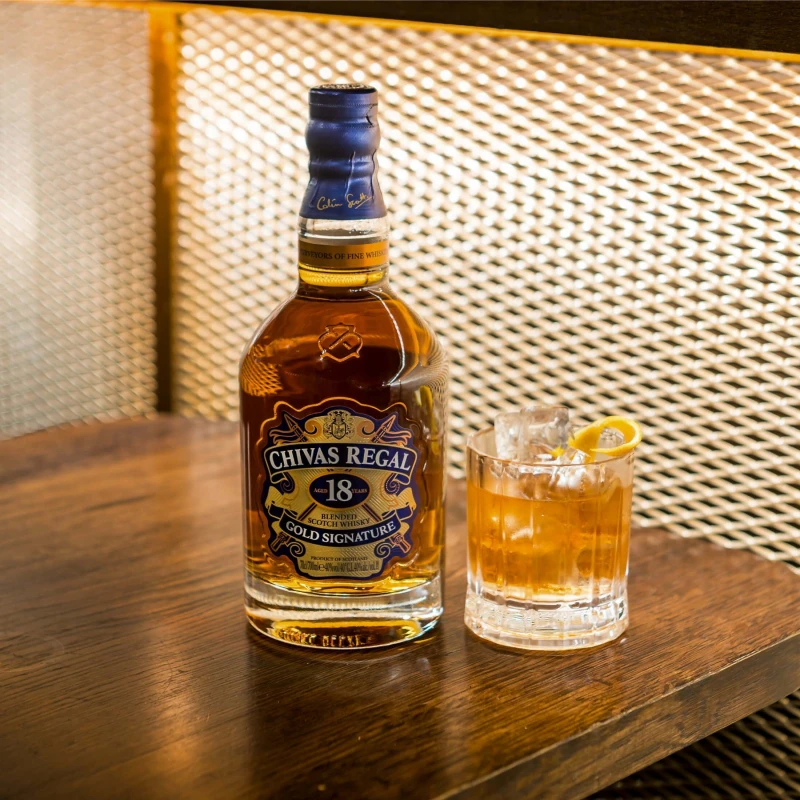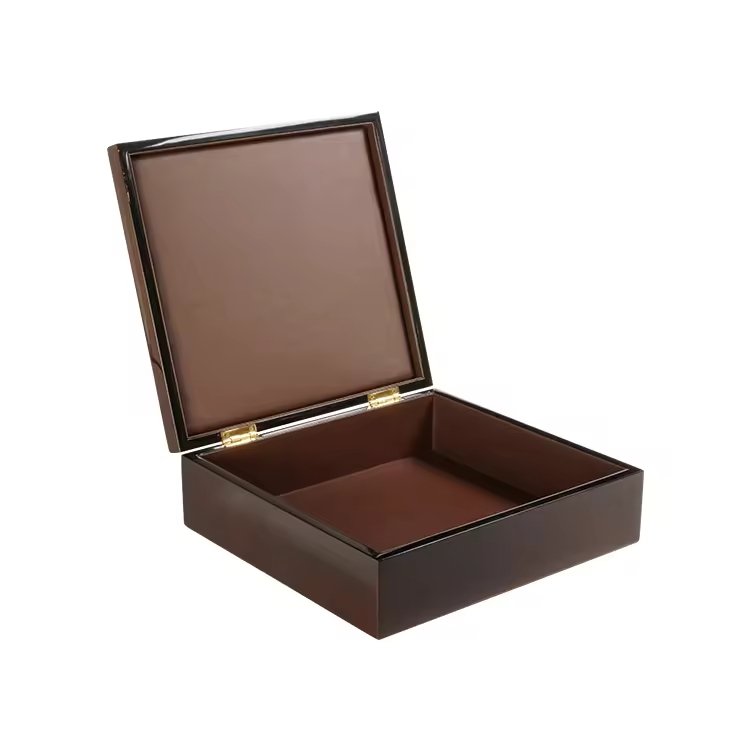
For many cigar enthusiasts, opening the box is as important as lighting the cigar itself. If this moment feels ordinary, the brand loses a chance to create magic.
The opening and closing actions of a cigar box convey ritual and prestige by using smooth mechanisms, tactile details, layered design, and theatrical presentation.
Let’s explore how each element builds a ceremonial experience.
Why does the pace and smoothness of opening a box affect the feeling of ceremony?
A rushed, clumsy opening breaks the atmosphere. Smoothness sets the tone for luxury.
The pace and fluid motion of opening create a ceremonial rhythm, signaling patience, refinement, and respect for the product.
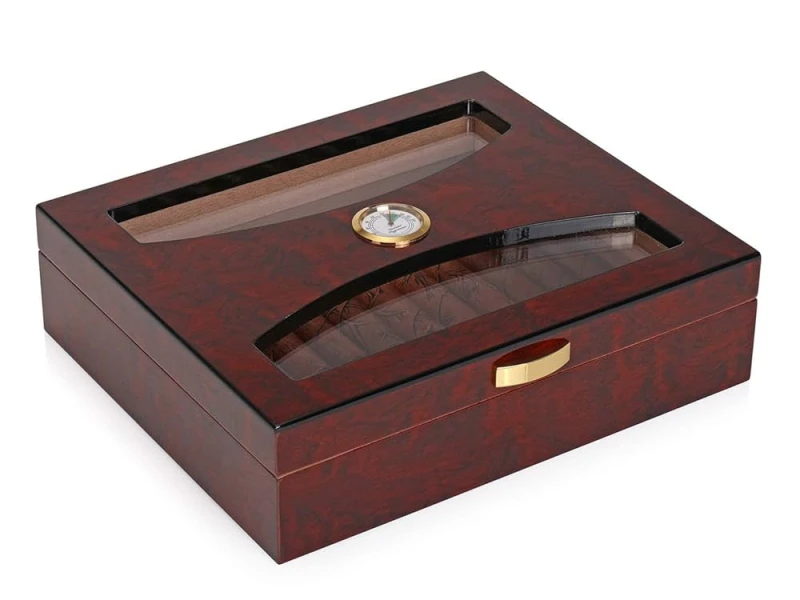
A lid that opens slowly and evenly feels intentional. It creates anticipation, like unveiling something sacred. This rhythm prepares the smoker for the experience ahead.
Smoothness factors
| Design Detail | Ritual Effect | Consumer Perception |
|---|---|---|
| Balanced hinges | Controlled pace | Calm, refined experience |
| Proper lid weight | Gravity-assisted smoothness | Feeling of significance |
| Even resistance | No sudden movement | Precision and care |
I once designed a humidor with carefully calibrated hinges. Customers described the opening as “like unsealing a treasure.” The ceremony started before the cigar was even touched.
Functional hardware can either disrupt or elevate the ritual. Invisible or refined systems always feel more exclusive.
Hidden hinges, magnetic locks, and soft-close systems enhance exclusivity by making opening feel effortless and controlled.
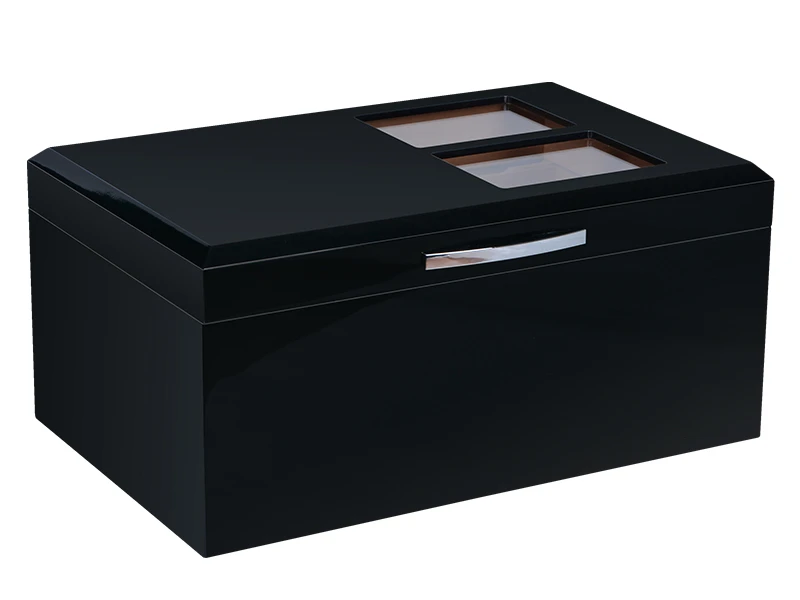
Magnetic closures replace noisy clasps with discreet precision. Hidden hinges keep the silhouette clean. Soft-close mechanisms prevent abrupt closure, reinforcing calm luxury.
Refined mechanism choices
| Feature | Prestige Effect | Experience Delivered |
|---|---|---|
| Hidden hinges | Seamless design | Aesthetic purity |
| Magnetic locks | Effortless precision | Quiet, modern exclusivity |
| Soft-close system | Slow, elegant closing | Extended ceremonial moment |
I once supplied boxes with magnetic locks to a boutique brand. Collectors said it felt like “opening a secret vault.” That subtle surprise elevated their perception.
In what way does the sound of opening or closing add to the ritualistic experience?
Luxury is multi-sensory. The sound of a box can become part of its identity.
The click, snap, or hush of a closing lid adds ritualistic weight, making the experience memorable.

A soft magnetic click signals precision. A gentle wooden thud reinforces authenticity. Even the hush of soft-close hinges becomes part of the ceremony. These sounds act like audio branding.
Sound effects in ritual
| Sound Type | Emotional Impact | Prestige Impression |
|---|---|---|
| Magnetic click | Precision, exclusivity | Modern refinement |
| Wooden thud | Tradition, authenticity | Heritage and seriousness |
| Quiet hush | Calm, controlled luxury | Understated elegance |
One customer told me he loved closing his humidor repeatedly “just for the sound.” That detail alone created a loyal emotional connection.
How does layering (outer box + inner compartment) build a sense of anticipation?
If cigars are revealed too quickly, the ritual ends too soon. Layering creates suspense.
Layered design builds anticipation by slowing the reveal and making each step part of the ceremony.
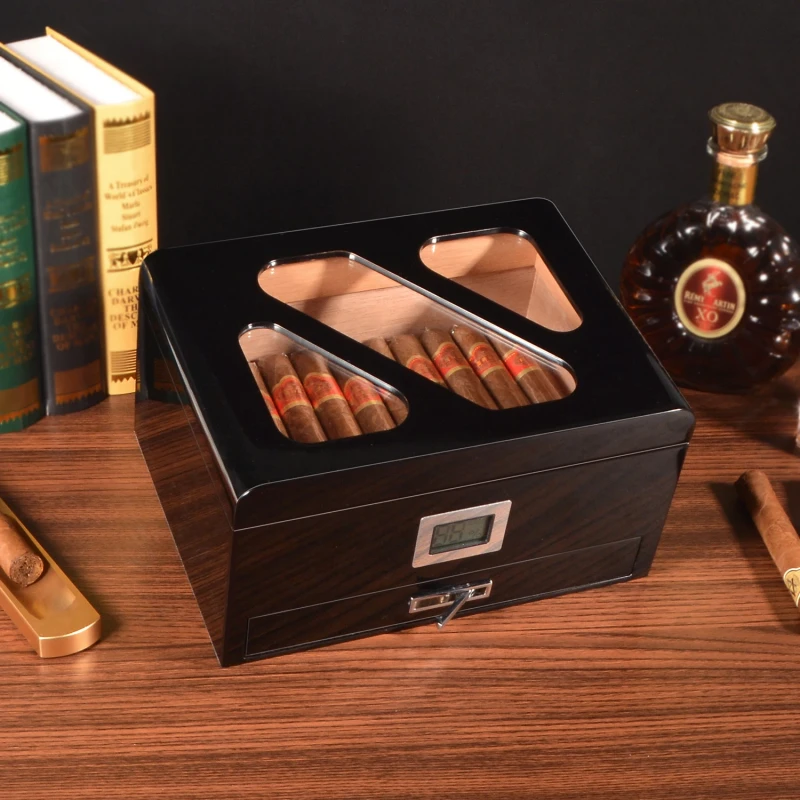
An outer shell, inner tray, and protective cloth create stages of unboxing. Each layer feels intentional, heightening curiosity and pleasure.
Layering effects
| Layer Type | Ritual Function | Consumer Emotion |
|---|---|---|
| Outer shell | First impression | Excitement and curiosity |
| Inner compartment | Protected reveal | Anticipation builds |
| Cloth or paper wrap | Final unveiling | Rewarding climax |
I once made a layered humidor for a limited edition. Customers said unboxing felt “like peeling history open step by step.” Anticipation became part of the prestige.
Why do tactile details like grip, handle, or clasp design shape user perception of prestige?
Touch is a critical part of ritual. If the box feels awkward to handle, it loses luxury cues.
Tactile details shape prestige by turning functional touches into sensory highlights.
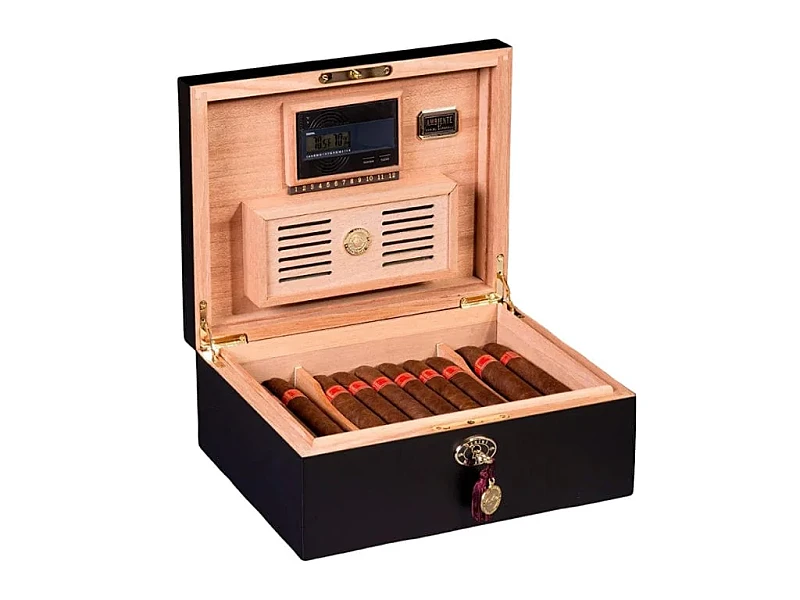
A soft leather grip, a polished brass clasp, or an inset groove for fingers makes the act of opening pleasurable. These touches show thoughtfulness and design intent.
Tactile prestige details
| Feature | Sensory Impact | Prestige Perception |
|---|---|---|
| Brass clasp | Cool, firm touch | Traditional luxury |
| Leather handle | Soft tactile elegance | Collectible appeal |
| Finger groove | Functional refinement | Ease with sophistication |
One Middle Eastern client insisted on a jewel-like clasp. His customers said it “felt like opening fine jewelry.” Touch became prestige.
How can brands balance practical usability with theatrical presentation in the unboxing moment?
If ritual goes too far, usability suffers. If practicality dominates, ritual is lost. Balance is essential.
Brands can balance usability with theater by ensuring opening is simple yet staged, practical yet ceremonial.

Magnets and hidden hinges should not make opening confusing. Layers should be elegant but not excessive. The goal is to create delight without frustration.
Balancing strategy
| Design Focus | Practical Role | Ritual Role |
|---|---|---|
| Smooth mechanism | Easy daily use | Controlled ceremonial pace |
| Layered structure | Protects cigars | Builds anticipation |
| Tactile accents | Comfort and usability | Prestige perception |
I once saw a brand make boxes with overly complex locks. Customers grew frustrated. When redesigned with simple magnets, the experience became smooth but still theatrical. Balance protected both form and function.
Conclusion
The opening and closing of a cigar box should be more than utility—it should feel like ceremony. Smooth mechanics, tactile details, layered design, and refined sound all turn unboxing into a ritual of prestige.
Brand Name: WoodoBox
Slogan: Custom Wooden Boxes, Crafted to Perfection
Website: www.woodobox.com
WhatsApp: +86 18359265311


